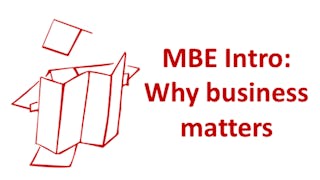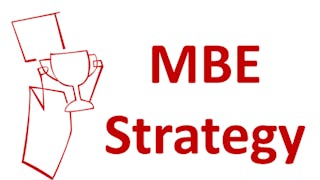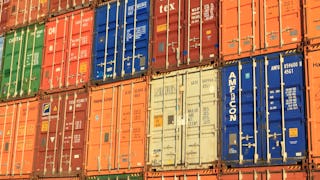Supply chain and operations are the bulk of what you see; it’s the hard work of turning ideas and strategies into tangible products for customers. How does the coffee bean turn into your Starbucks coffee? Answer: a LOT of operations



Mastering Business Essentials: Operations
This course is part of MBE Mastering Business Essentials Specialization

Instructor: John Kim
Top Instructor
Included with 
Recommended experience
What you'll learn
Explain supply chain and operations to your cousin.
Find the 20% that drive 80% of results.
Skills you'll gain
Details to know

Add to your LinkedIn profile
June 2025
2 assignments
See how employees at top companies are mastering in-demand skills

Build your subject-matter expertise
- Learn new concepts from industry experts
- Gain a foundational understanding of a subject or tool
- Develop job-relevant skills with hands-on projects
- Earn a shareable career certificate

There are 5 modules in this course
Supply chain is a massive topic; it describes the entire lifecycle of the product - from the raw ingredients, to the planning, manufacturing, and eventual distribution to the end customer. Remember that a cup of coffee started out as coffee beans. So, operations turns strategy into reality. Operations is difficult because it requires significant effort, coordination, risk, and trade-offs. The good news is that global trade increased 10x over the last 50 years. The bad news is that protectionism (e.g., tariffs) are on the rise and geopolitics can negatively influence free trade.
What's included
2 videos2 readings
The SCOR (Supply Chain Operations Reference guide) is a simple way to think about supply chain and organize it into buckets. Matching supply and demand “as accurately as possible” for all the different supplies, products, customers, locations. Buying all the necessary materials, equipment, labor to build bikes at the “right” quality and “right” costs. Manufacturing products “to specification” while running the factory flexibly, efficiently, and safely. Getting products to customers accurately, on-time, at lowest acceptable cost.
What's included
3 videos1 reading1 assignment
Build-to-stock products are made in advance with the goal of creating economies of scale (and lower costs). Make-to-order products are built after the order is placed, to allow for more customization and less inventory. Services are “made” and “delivered” at the same time. It requires having enough of the right people to meet the demand. Digital assets are unique because it’s easy/cheap to copy and distribute widely to the second, third. . . thousandth customer.
What's included
3 videos1 reading
There are 3 parts to this module: 1) Economies of scale matter a lot in business. “The bigger you get, the cheaper you can make your products”. This is why many businesses try to keep growing. 2) In addition to this scale, there has also been drive to improve productivity through standardization. The Toyota Production System (TPS) revolutionized how cars were made by emphasizing quality as the most important production criteria. The idea was that quality was the “first domino” that led to better flow, lower costs. 3) Lean focuses on speed and efficiency. Six Sigma focused on accuracy and reliable. Both are useful and complementary.
What's included
4 videos1 reading1 assignment
This is the last module in the specialization and it's focused on prioritization. We all know that it's easy to be distracted and waste time. It's important to focus on the “stuff that matters”. One way to do this is to focus on CTQ (what is truly critical) and also the 80/20 principle. Namely, what are the 20% of inputs that drive the 80% of outputs?
What's included
5 videos1 reading1 peer review
Earn a career certificate
Add this credential to your LinkedIn profile, resume, or CV. Share it on social media and in your performance review.
Instructor

Offered by
Explore more from Business Essentials
 Status: Free Trial
Status: Free TrialEmory University
 Status: Free Trial
Status: Free TrialRutgers the State University of New Jersey
 Status: Free Trial
Status: Free TrialEmory University
 Status: Free Trial
Status: Free TrialRutgers the State University of New Jersey
Why people choose Coursera for their career





Open new doors with Coursera Plus
Unlimited access to 10,000+ world-class courses, hands-on projects, and job-ready certificate programs - all included in your subscription
Advance your career with an online degree
Earn a degree from world-class universities - 100% online
Join over 3,400 global companies that choose Coursera for Business
Upskill your employees to excel in the digital economy
Frequently asked questions
This specialization targets 3 groups of people:
1) New college graduates: get smart quickly on business essentials quickly, prepare for interviews, start strong with new jobs
2) Corporate managers: develop a broader, more executive view of the business challenges, make better decisions; persuade with data, influence others (departments / leaders), get more done with same resources
3) Entrepreneurs: find a gap in the market for your product/service, acquire customers and drive word-of-mouth, drive business profits
Albert Einstein famously argued that simplicity is difficult. "If you can't explain it simply, you don't understand it well enough."
As adults, we need to learn selfishly and continually relate content to our lives and careers. These videos are short, but cover the the basics very well, which allows you to take a first-principles approach to learning. As Einstein said, "Education is what you remember, when you forget everything you learned."
John Kim, is an associate professor in the practice, at Emory University. He is a management consultant by experience and passion. He's been teaching strategy, healthcare, and consulting since 2017.
He has a Management Consulting specialization here with 1,300+ reviews with a weighted average 4.9 star rating here.
His teaching style is interactive - yes, even with online videos - and wants you to succeed. See his teaching philosophy here.
More questions
Financial aid available,

